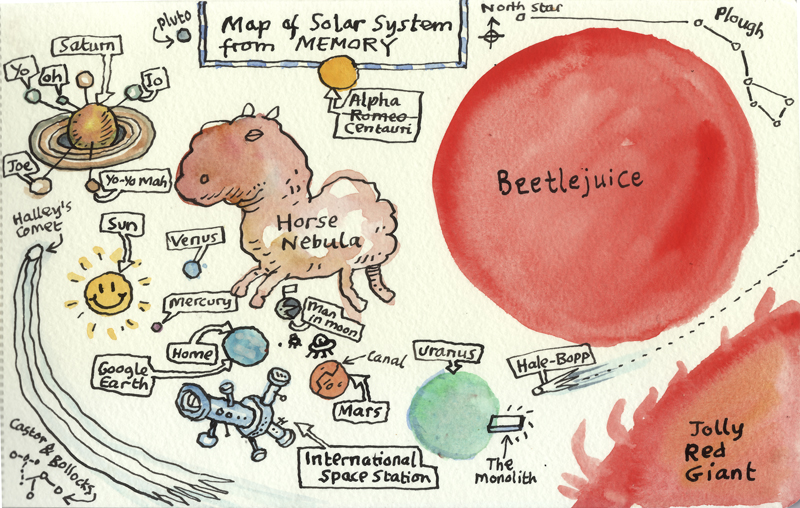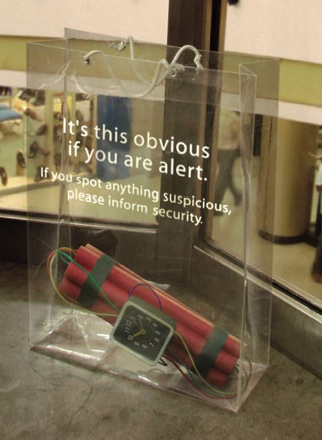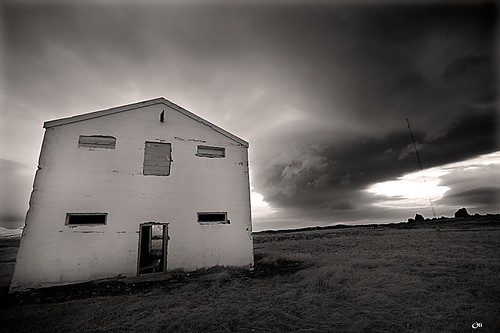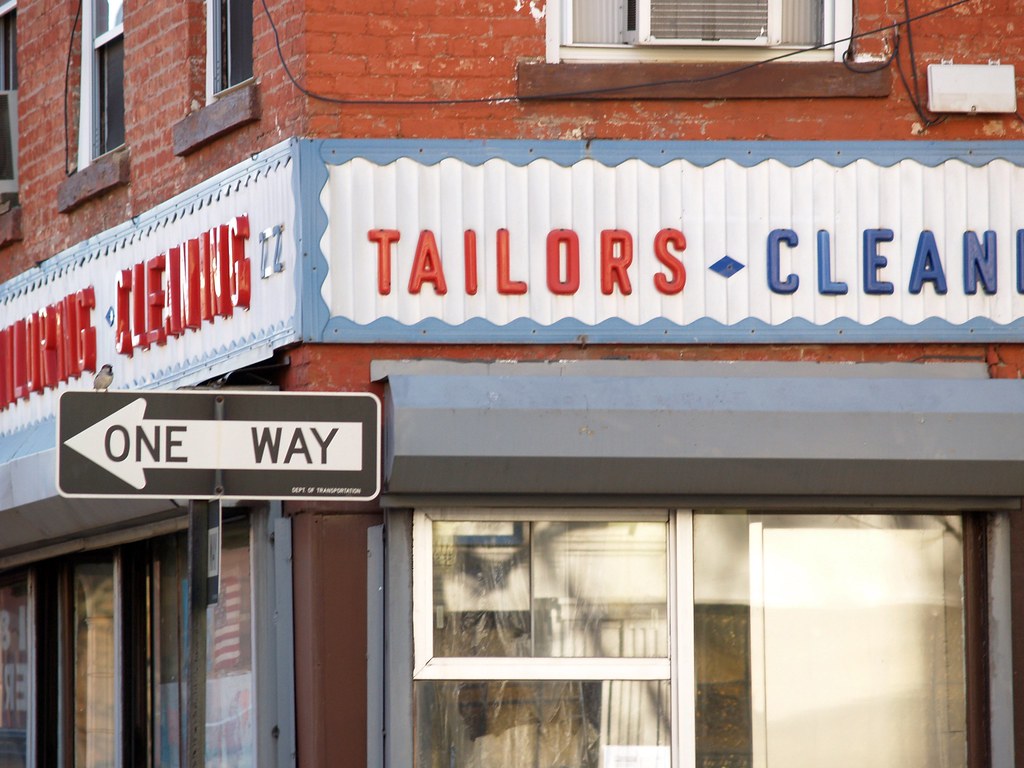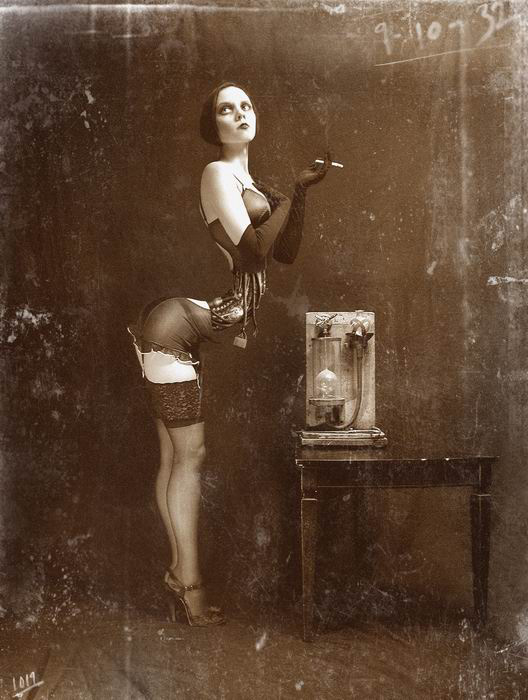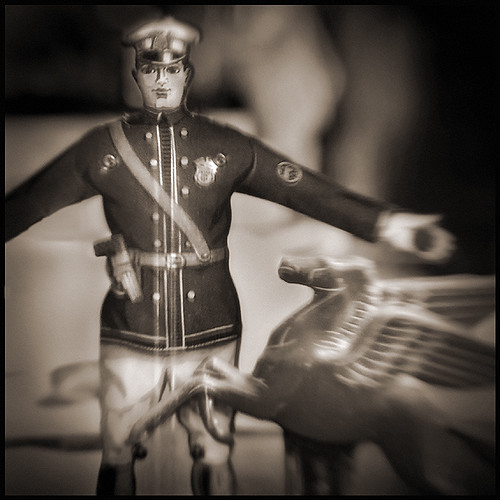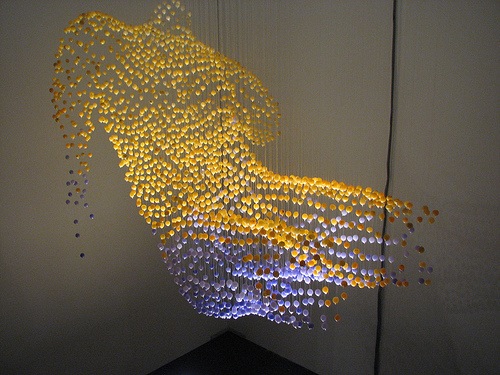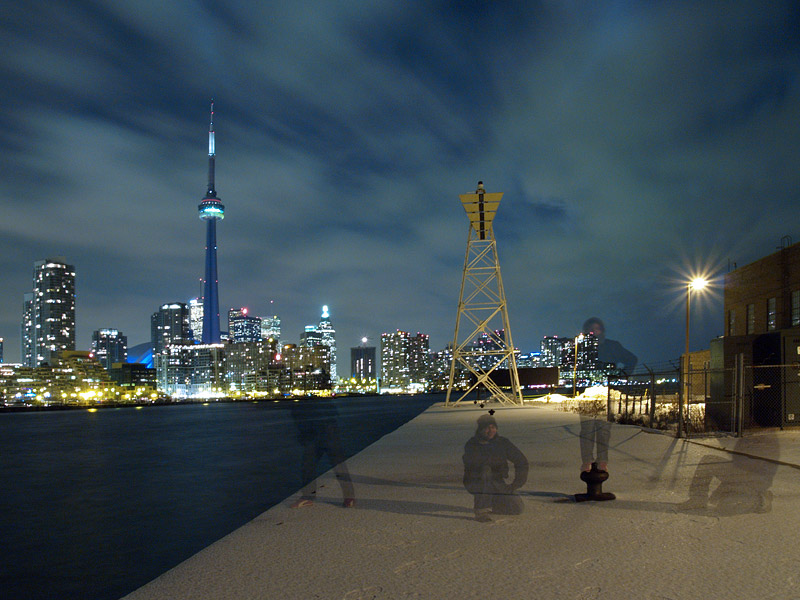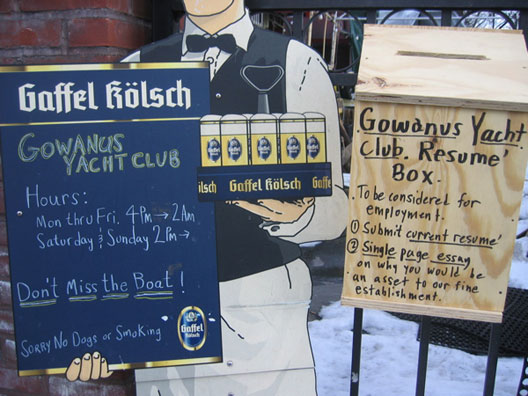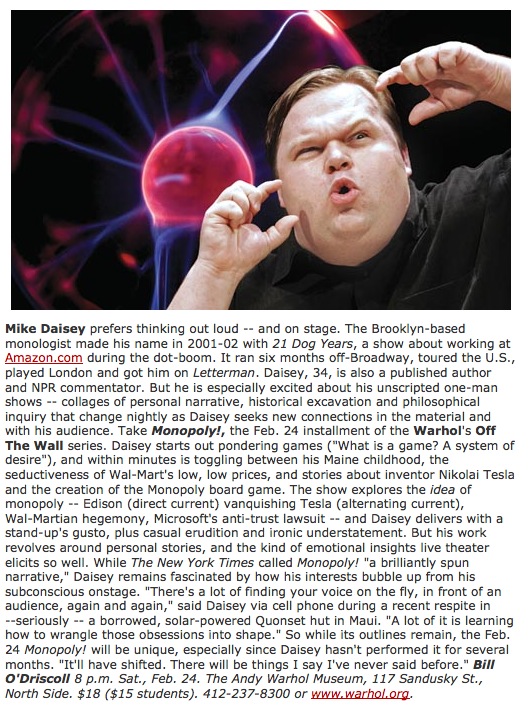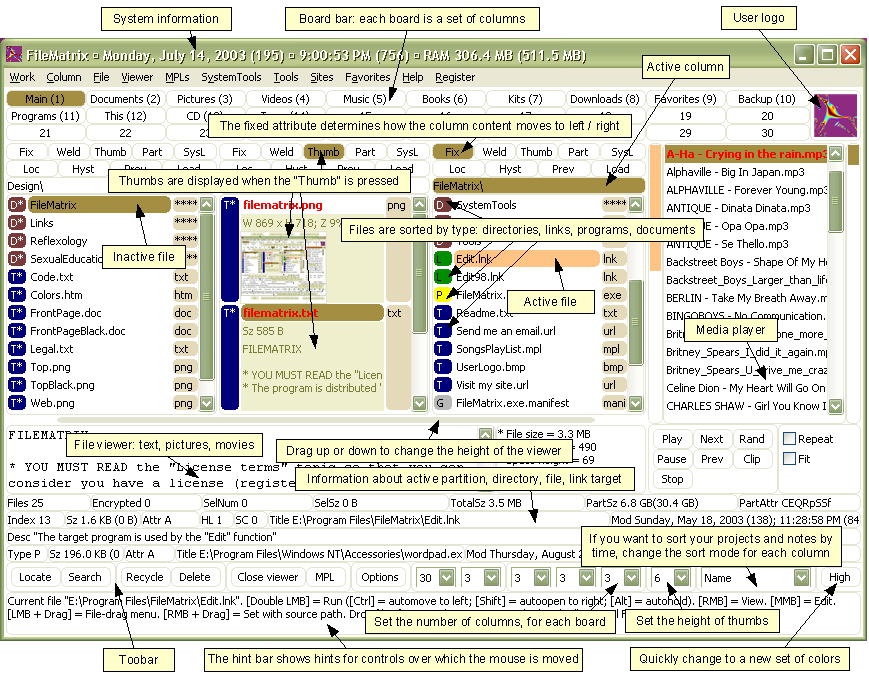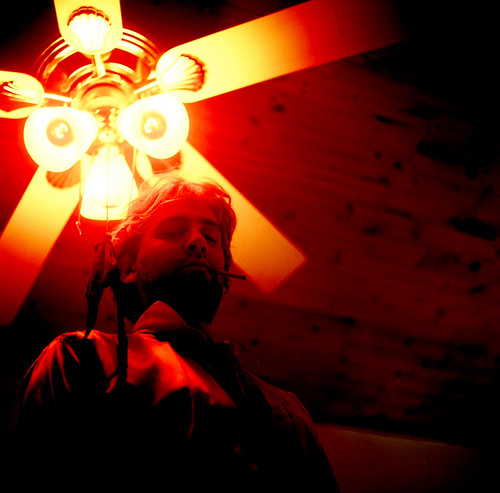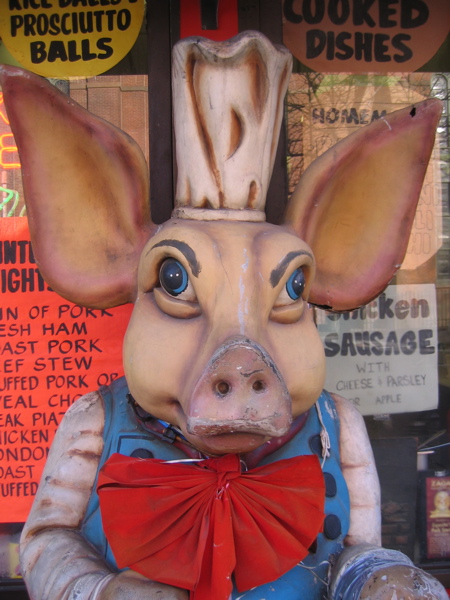Call Me Fishmeal.: "Piracy reduction can be a source of Windows revenue growth":
Thus spake Ballmer.
First off, someone kill me if I ever talk about "sources of revenue growth" intead of "making really cool products that people actually, you know, like and stuff."
Second, how freaking out of touch is this guy? He told analysts 'the company might "dial up" the intensity of antipiracy technology baked into Windows Vista as part of an effort to squeeze more revenue from China, India, Brazil, Russia and other emerging markets.'
Damn, that's a fine idea, Steve! Those freaking Chinese are sitting on piles of gold! They pirate your software because they are a greedy, greedy people, not because Windows Vista Basic costs $295 in China and laborers rake in about $160 a month.
Wednesday, February 28, 2007
Elizabeth Daisey (nee Borthwick) 1814-1864:
His descendants understand that Michael Daisy came to Australia in 1834 and that the Daisy / Daisey family originally came from Sutherland in Scotland and moved to Ireland. We don't yet know, however, what ship Michael Daisey arrived on or what he did when he first embarked in this country.
Nor do we know exactly when and where Michael Daisey was born. His birth year was given as follows: Age at 1st marriage was 30 = born circa 1814. Age at 2nd marriage was 52 = born circa 1815. Age at death was 67 = b. circa 1815.
Frederick Morrison, MA, MD, in Aldine's History of Queensland, Volume II, 1888, p.530, says the following about Michael Daisey:
The late Michael Daisey, as one of the early pioneers, may fairly claim a place of recognition in this work. He was in every sense of the word a self-made man, and well made at that. He was born in Ireland in the year 1815, and arrived in New South Wales about 1836, and was employed by the late Peter McIntyre, in whose service he saw some rough life, overlanding, etc. He soon acquired a good knowledge of stock generally and their management. He, with two others, came from Maitland to the New England district, and took up the well known runs of Byron and Auburn Vale. In 1858 he went into the Maranoa district to inspect Coogoon, which he purchased from the late Sir J. P. Bell. The following year he took sheep and cattle there, and formed the station on which he carried on successfully until the year 1873, when he sold it. He became a landowner and resident of the West Moreton district in 1861, and resided there until his death in 1881. The Coogoon run is situated in what was known as the "Never Never" country, Talavera being on the one side and Mount Abundance on the other.
The sources for this information are not given however, making research difficult.
His descendants understand that Michael Daisy came to Australia in 1834 and that the Daisy / Daisey family originally came from Sutherland in Scotland and moved to Ireland. We don't yet know, however, what ship Michael Daisey arrived on or what he did when he first embarked in this country.
Nor do we know exactly when and where Michael Daisey was born. His birth year was given as follows: Age at 1st marriage was 30 = born circa 1814. Age at 2nd marriage was 52 = born circa 1815. Age at death was 67 = b. circa 1815.
Frederick Morrison, MA, MD, in Aldine's History of Queensland, Volume II, 1888, p.530, says the following about Michael Daisey:
The late Michael Daisey, as one of the early pioneers, may fairly claim a place of recognition in this work. He was in every sense of the word a self-made man, and well made at that. He was born in Ireland in the year 1815, and arrived in New South Wales about 1836, and was employed by the late Peter McIntyre, in whose service he saw some rough life, overlanding, etc. He soon acquired a good knowledge of stock generally and their management. He, with two others, came from Maitland to the New England district, and took up the well known runs of Byron and Auburn Vale. In 1858 he went into the Maranoa district to inspect Coogoon, which he purchased from the late Sir J. P. Bell. The following year he took sheep and cattle there, and formed the station on which he carried on successfully until the year 1873, when he sold it. He became a landowner and resident of the West Moreton district in 1861, and resided there until his death in 1881. The Coogoon run is situated in what was known as the "Never Never" country, Talavera being on the one side and Mount Abundance on the other.
The sources for this information are not given however, making research difficult.
Is Whole Foods Straying From Its Roots? - New York Times:
The food may have been more expensive, but for many shoppers it was worth it. Since opening its first store in Austin, Tex., in 1980, Whole Foods has grown from a small business to a mega-chain with 193 stores, capping its rise last week with a deal to acquire the 110 stores of its largest rival, Wild Oats.
The newer stores are getting bigger, too: 60,000- to 80,000-square-foot supermarkets, they have extensive prepared food offerings, along with in-store restaurants, spas, concierge shopping services, gelato stands, chocolate fountains and pizza counters.
While many shoppers find the new stores exhilarating places to shop, the company also faces critics who feel it has strayed from its original vision. In angry postings on blogs, they charge that the store is not living up to its core values — in particular, protecting the environment and supporting organic agriculture and local farmers. In interviews, some of the customers who describe themselves as committed to these values say they have become disillusioned and taken their business elsewhere.
The food may have been more expensive, but for many shoppers it was worth it. Since opening its first store in Austin, Tex., in 1980, Whole Foods has grown from a small business to a mega-chain with 193 stores, capping its rise last week with a deal to acquire the 110 stores of its largest rival, Wild Oats.
The newer stores are getting bigger, too: 60,000- to 80,000-square-foot supermarkets, they have extensive prepared food offerings, along with in-store restaurants, spas, concierge shopping services, gelato stands, chocolate fountains and pizza counters.
While many shoppers find the new stores exhilarating places to shop, the company also faces critics who feel it has strayed from its original vision. In angry postings on blogs, they charge that the store is not living up to its core values — in particular, protecting the environment and supporting organic agriculture and local farmers. In interviews, some of the customers who describe themselves as committed to these values say they have become disillusioned and taken their business elsewhere.
Brooklyn Record: Coney Island: Funky T-Shirts Out, Condos In:
Dianna Carlin, owner of Lola Staar Souvenir Boutique, has been selling her Coney Island-themed tees on the boardwalk for seven years and she was planning on sticking around — but after she signed a lease (that was never executed) with Thor Equities, she was evicted. The lease also included a confidentiality clause — which was seemingly meant to stop local businesses from complaining about watching their neighborhood get knocked down. “Thor has forced everyone to sign the confidentiality clause, so when people go to the businesses and ask about it, all you can do is shrug your shoulders,” Carlin said. “They’re trying to deceive everyone into believing they will create amusements. They just want to play hardball with the city to get the zoning changed so they can build condos on the boardwalk.”
Dianna Carlin, owner of Lola Staar Souvenir Boutique, has been selling her Coney Island-themed tees on the boardwalk for seven years and she was planning on sticking around — but after she signed a lease (that was never executed) with Thor Equities, she was evicted. The lease also included a confidentiality clause — which was seemingly meant to stop local businesses from complaining about watching their neighborhood get knocked down. “Thor has forced everyone to sign the confidentiality clause, so when people go to the businesses and ask about it, all you can do is shrug your shoulders,” Carlin said. “They’re trying to deceive everyone into believing they will create amusements. They just want to play hardball with the city to get the zoning changed so they can build condos on the boardwalk.”
We have no paucity of good young playwrights, and good older playwrights; we don't have the happiest environment for them to work in. Like in the art world and in literature, the theater's just as trendy, as dangerous and corrupt. The big problem is the assumption that writing a play is a collaborative act. It isn't. It's a creative act, and then other people come in. The interpretation should be for the accuracy of what the playwright wrote. Playwrights are expected to have their text changed by actors they never wanted. Directors seem to feel they are as creative as the playwright. Most of these changes are for commercial reasons. I know a lot about it because I'm on the council of the Dramatists Guild, but of course the pressures are on all of us. I'm in the lucky position where I just say, "Go fuck yourself; if you don't want to do the play I wrote, do another play." The forces of darkness would back down if everybody said that. Theater wouldn't go away and Disney wouldn't go away. It's all because people believe that entertainment has to be superficial.
Edward Albee
Edward Albee
Where the Coffee Shop Meets the Cubicle:
In the earliest stage of his startup Darius Roberts, 27, shared the de facto office of many a San Francisco techie: a coffee shop.
Working out of a Wi-Fi-enabled java joint in the Mission district was infinitely more pleasant and productive for him than flying solo in a home office at his Oakland apartment. And it provided the opportunity to meet other developers he might even be able to hire one day, as his Web-based car-sharing company, DartCar, grew.
But when Roberts picked up a flyer about a "community office space" called the Hat Factory, he realized there was an even better option. For $10 a day or $170 per month, the Hat Factory could provide him with a desk, standard office amenities, and access to a shared kitchen, private meeting room, and lounge. And something else—community spirit. "You can meet people at a coffee shop, but it's harder to have meaningful interactions," Roberts says. "Co-working lends itself to that."
In the earliest stage of his startup Darius Roberts, 27, shared the de facto office of many a San Francisco techie: a coffee shop.
Working out of a Wi-Fi-enabled java joint in the Mission district was infinitely more pleasant and productive for him than flying solo in a home office at his Oakland apartment. And it provided the opportunity to meet other developers he might even be able to hire one day, as his Web-based car-sharing company, DartCar, grew.
But when Roberts picked up a flyer about a "community office space" called the Hat Factory, he realized there was an even better option. For $10 a day or $170 per month, the Hat Factory could provide him with a desk, standard office amenities, and access to a shared kitchen, private meeting room, and lounge. And something else—community spirit. "You can meet people at a coffee shop, but it's harder to have meaningful interactions," Roberts says. "Co-working lends itself to that."
Tuesday, February 27, 2007
America tortures (yawn) - Los Angeles Times:
Thanks to Abu Ghraib, Guantanamo, "extraordinary renditions" and "black sites," many people now take for granted the image of the American as torturer. At least 100 prisoners have been killed while in U.S. custody in Iraq and Afghanistan, and many more have been beaten, humiliated and abused. Still others have been secretly handed over to our even less-scrupulous friends in various Middle Eastern intelligence services. And though the vast majority of our troops and officials abide by both the spirit and the letter of U.S. and international laws, such abusive tactics have been authorized by officials at the highest level of the U.S. government.
In November 2001, 66% of Americans said they "could not support government-sanctioned torture of suspects" as part of the war on terrorism. And when photos of abuses at Abu Ghraib surfaced in the spring of 2004, the U.S. news media treated it — rightly — as a major scandal. In October 2005, the U.S. Senate voted 90-9 in support of legislation prohibiting the inhumane treatment of prisoners, sponsored by Arizona Sen. John McCain.
But over the last year, we seem to have lost our former sense of outrage, though prisoner abuse has hardly ended.
Thanks to Abu Ghraib, Guantanamo, "extraordinary renditions" and "black sites," many people now take for granted the image of the American as torturer. At least 100 prisoners have been killed while in U.S. custody in Iraq and Afghanistan, and many more have been beaten, humiliated and abused. Still others have been secretly handed over to our even less-scrupulous friends in various Middle Eastern intelligence services. And though the vast majority of our troops and officials abide by both the spirit and the letter of U.S. and international laws, such abusive tactics have been authorized by officials at the highest level of the U.S. government.
In November 2001, 66% of Americans said they "could not support government-sanctioned torture of suspects" as part of the war on terrorism. And when photos of abuses at Abu Ghraib surfaced in the spring of 2004, the U.S. news media treated it — rightly — as a major scandal. In October 2005, the U.S. Senate voted 90-9 in support of legislation prohibiting the inhumane treatment of prisoners, sponsored by Arizona Sen. John McCain.
But over the last year, we seem to have lost our former sense of outrage, though prisoner abuse has hardly ended.
MODEL'S BEEF WITH DELI By PATRICK WHITE - Regionalnews - New York Post Online Edition:
He had a dust-up with the muscle at Katz's Deli - and says he wound up with a black eye from their knuckle sandwich because of it.
Manhattan model Darren Gough, 35, yesterday told The Post he went to the famed deli on East Houston Street early on Sunday to order a hot dog with onions after drinking with a buddy at the nearby Spring Lounge.
But the chisel-jawed model - whose face has appeared on a billboard in Times Square and in print ads for everything from Verizon to Nabisco - said he decided to leave empty-handed after waiting in line 10 to 15 minutes to order.
That's when deli security stepped in, thinking he might be skipping out on his bill, and demanding to see a payment ticket, Gough said.
He had a dust-up with the muscle at Katz's Deli - and says he wound up with a black eye from their knuckle sandwich because of it.
Manhattan model Darren Gough, 35, yesterday told The Post he went to the famed deli on East Houston Street early on Sunday to order a hot dog with onions after drinking with a buddy at the nearby Spring Lounge.
But the chisel-jawed model - whose face has appeared on a billboard in Times Square and in print ads for everything from Verizon to Nabisco - said he decided to leave empty-handed after waiting in line 10 to 15 minutes to order.
That's when deli security stepped in, thinking he might be skipping out on his bill, and demanding to see a payment ticket, Gough said.
Boing Boing: Vancouver cops hate WiFi:
Kevin R. West, a federal agent who oversees the computer crimes unit in North Carolina's State Bureau of Investigation: "Free wireless spots are everywhere, and it makes it easy for people . . . to sit there and do their nefarious acts. The fear is that if we talk about it, people will learn about it and say, 'I can go to a parking lot, and no one will catch me.' But we need to talk about it so that we can figure out how to solve it."
Kevin R. West, a federal agent who oversees the computer crimes unit in North Carolina's State Bureau of Investigation: "Free wireless spots are everywhere, and it makes it easy for people . . . to sit there and do their nefarious acts. The fear is that if we talk about it, people will learn about it and say, 'I can go to a parking lot, and no one will catch me.' But we need to talk about it so that we can figure out how to solve it."
Monday, February 26, 2007
Crazy Apple Rumors Site » Blog Archive » Apple and Cisco Settle.:
Apple and Cisco announced late today that they had reached an agreement over the use of the iPhone trademark.
According to the terms of the deal, both companies get to use the “iPhone” name on their products and the firms will “explore new opportunities to work together”.
Other terms of the agreement include:
* Apple gets to the use the iPhone trademark on Mondays, Wednesdays, Fridays and every other weekend. Cisco gets it the other days. This arrangement will be renegotiated when the iPhone trademark goes off to boarding school.
* Apple may declare the contract invalid if Cisco uses the word “irregardless”* in a non-ironic context.
* Cisco may invoke an escape clause at any time by yelling the “safe word”, which is “banana”.
* Apple is allowed to name products with any arrangement of the letters in “iPhone”. Look for the Apple Phonie coming soon.
* Apple is allowed to roll its eyes anytime anyone mentions the partnership with Cisco and say things like “Pff. Cisco. Don’t get me started on that bitch.”
* Cisco gets to say it contributed technology to at least three Apple products a year, even if it isn’t true.
* To demonstrate their continued commitment, representatives from both companies must meet every year at a large flat rock on the top of Mt. Ararat and reenact the final scene from the 1995 New Port Richie FL Dinner Theater production of A Streetcar Named Desire - staring Joe Piscopo and Cyndi Lauper - using marionettes.
Apple and Cisco announced late today that they had reached an agreement over the use of the iPhone trademark.
According to the terms of the deal, both companies get to use the “iPhone” name on their products and the firms will “explore new opportunities to work together”.
Other terms of the agreement include:
* Apple gets to the use the iPhone trademark on Mondays, Wednesdays, Fridays and every other weekend. Cisco gets it the other days. This arrangement will be renegotiated when the iPhone trademark goes off to boarding school.
* Apple may declare the contract invalid if Cisco uses the word “irregardless”* in a non-ironic context.
* Cisco may invoke an escape clause at any time by yelling the “safe word”, which is “banana”.
* Apple is allowed to name products with any arrangement of the letters in “iPhone”. Look for the Apple Phonie coming soon.
* Apple is allowed to roll its eyes anytime anyone mentions the partnership with Cisco and say things like “Pff. Cisco. Don’t get me started on that bitch.”
* Cisco gets to say it contributed technology to at least three Apple products a year, even if it isn’t true.
* To demonstrate their continued commitment, representatives from both companies must meet every year at a large flat rock on the top of Mt. Ararat and reenact the final scene from the 1995 New Port Richie FL Dinner Theater production of A Streetcar Named Desire - staring Joe Piscopo and Cyndi Lauper - using marionettes.
Researchers condense entire image into single photon - Engadget:
A team of researchers has managed to find a way to store a large amount of data in a single photon of light. Although the first stored item -- an image of the characters "UR" -- implies that the inventor was a 13 year old girl dealing with an extremely low text messaging limit, the image was in fact intended to signify the institution which developed the technology, the University of Rochester (either that or it's the shortest example of the "UR IN MY ... " meme that we've seen in the while.) Apparently the system works because "instead of storing ones and zeros" (a la binary code), the team has figured out how to store an entire image in a single photon, which sounds sort of impossible to us. Funny, because that's exactly what John Howell, the leader of the team said about the system.
A team of researchers has managed to find a way to store a large amount of data in a single photon of light. Although the first stored item -- an image of the characters "UR" -- implies that the inventor was a 13 year old girl dealing with an extremely low text messaging limit, the image was in fact intended to signify the institution which developed the technology, the University of Rochester (either that or it's the shortest example of the "UR IN MY ... " meme that we've seen in the while.) Apparently the system works because "instead of storing ones and zeros" (a la binary code), the team has figured out how to store an entire image in a single photon, which sounds sort of impossible to us. Funny, because that's exactly what John Howell, the leader of the team said about the system.
Gawker Underminer: Come To Graydon Carter's Warm Inner Thighfold. Or Not. Whatever. - Gawker:
My favorite place is right smack dab back where it all started on 42nd street. It doesn't have a name but it's a nondescript doorway in the back of the Cold Stone Creamery. You just have to push past the angry girl mopping the floor for minimum wage and walk through the kitchen.
The other day I was at a table there with Salman Rushdie, Carolina Herrera, Lou Reed, Bob Costas, and the cast of Coast of Utopia still in their period garb, and we all suddenly let out this unanimous super exclusive exhale of utter depressed defeat at our lives, our country, our souls. We realized we were so sick of these exclusive spaces so we all grabbed our jackets, cloaks and capelets and went to Astor Place and spun that big cube around.
My favorite place is right smack dab back where it all started on 42nd street. It doesn't have a name but it's a nondescript doorway in the back of the Cold Stone Creamery. You just have to push past the angry girl mopping the floor for minimum wage and walk through the kitchen.
The other day I was at a table there with Salman Rushdie, Carolina Herrera, Lou Reed, Bob Costas, and the cast of Coast of Utopia still in their period garb, and we all suddenly let out this unanimous super exclusive exhale of utter depressed defeat at our lives, our country, our souls. We realized we were so sick of these exclusive spaces so we all grabbed our jackets, cloaks and capelets and went to Astor Place and spun that big cube around.
Sarah Vowell Dreams of Bill Nighy and Grange Hall - New York Magazine's Daily Intelligencer:
What makes someone a New Yorker?
Daydreaming of L.A.? An inexplicable soft spot for Regis? Jaywalking in front of an ambulance? Sure. But especially: recognizing that the all-time most hopeful and hilarious title in the history of broadcasting is WNYC's annual holiday special "The Jonathan Schwartz Christmas Show."
What makes someone a New Yorker?
Daydreaming of L.A.? An inexplicable soft spot for Regis? Jaywalking in front of an ambulance? Sure. But especially: recognizing that the all-time most hopeful and hilarious title in the history of broadcasting is WNYC's annual holiday special "The Jonathan Schwartz Christmas Show."
Sunday, February 25, 2007
An announcement about tomorrow night's OCCURRENCE:

Things you will see at Monday's OCCURRENCE:
-- Reggie Watts tearing up the Line 6 sampler
-- fine comedy from Todd Levin
-- master storyteller Mike Daisey telling a short tale
-- singing and dancing extravaganza from Lady Rizo & co.
-- royal rhymes by Ramiz Monsef and Ian Merrigan
-- perucssionist Quilken beating on some junk
-- comic-absurd films from Tommy Smith and Reggie Watts
All for six bux!
You have no excuse:
OCCURRENCE
Monday, February 26
10:00p doors / 10:30p show
$6
Galapagos
http://www.galapagosartspace.com/
See you there?
md

Things you will see at Monday's OCCURRENCE:
-- Reggie Watts tearing up the Line 6 sampler
-- fine comedy from Todd Levin
-- master storyteller Mike Daisey telling a short tale
-- singing and dancing extravaganza from Lady Rizo & co.
-- royal rhymes by Ramiz Monsef and Ian Merrigan
-- perucssionist Quilken beating on some junk
-- comic-absurd films from Tommy Smith and Reggie Watts
All for six bux!
You have no excuse:
OCCURRENCE
Monday, February 26
10:00p doors / 10:30p show
$6
Galapagos
http://www.galapagosartspace.com/
See you there?
md
Saturday, February 24, 2007
Guardian Unlimited: Arts blog - theatre: Theatre of the absurd:
I will doubtless be accused of elitism. But all I am arguing is that there is a risk of treating popular opinion as the deciding factor on everything. One of the most dismal public statements made in British life was by Richard Luce, a Thatcherite minister, who said of the arts that "the only test of our ability to succeed is whether we can attract enough customers". By that token, most fringe theatres would have been shut down and The Mousetrap was the greatest play of the 20th century. While ultimately the arts are answerable to the public, I think it highly dangerous if creators and critics surrender to the capricious tyranny of popular opinion. As George Bernard Shaw said, when accused of disliking an immensely successful Gallic boulevard comedy: "Forty million Frenchmen can't be right."
I will doubtless be accused of elitism. But all I am arguing is that there is a risk of treating popular opinion as the deciding factor on everything. One of the most dismal public statements made in British life was by Richard Luce, a Thatcherite minister, who said of the arts that "the only test of our ability to succeed is whether we can attract enough customers". By that token, most fringe theatres would have been shut down and The Mousetrap was the greatest play of the 20th century. While ultimately the arts are answerable to the public, I think it highly dangerous if creators and critics surrender to the capricious tyranny of popular opinion. As George Bernard Shaw said, when accused of disliking an immensely successful Gallic boulevard comedy: "Forty million Frenchmen can't be right."
Wonderful feature in the NYT today on Ars Nova, the venue that supported the development and production of TRUTH last fall--a great group of people doing real, substantive work that helps artists immensely.
A Week In The Life Of Ars Nova:
Something felt very unusual about the first public reading, earlier this month, of Brooke Berman’s “Out of the Water.” It wasn’t just that the play was good; that sometimes happens. Nor was it so rare to find, even on a bitter Monday night in February, an enthusiastic audience of 40 and a top-notch cast of young theater names. But it seemed almost suspicious that a hip new play by a writer not widely known was being presented in a room with comfortable seats. Also, the heat worked. And what had become of the rats and pigeons that usually attended such readings? Who printed the nice programs? Why were the bathrooms so lovely?
The answer to all of these questions was Ars Nova, the mighty little uptown-downtown theatrical venture on far West 54th Street, which was presenting “Out of the Water” as part of its Out Loud play-reading series. In a landscape defined by stately institutional behemoths and youthful but impoverished start-ups, Ars Nova has designed something new from the best elements of each. That night, and in different, surprising ways every night that week, the young theater focused on the necessary middle, valorizing emerging art and artists by putting them in an environment usually reserved for grandees.
A Week In The Life Of Ars Nova:
Something felt very unusual about the first public reading, earlier this month, of Brooke Berman’s “Out of the Water.” It wasn’t just that the play was good; that sometimes happens. Nor was it so rare to find, even on a bitter Monday night in February, an enthusiastic audience of 40 and a top-notch cast of young theater names. But it seemed almost suspicious that a hip new play by a writer not widely known was being presented in a room with comfortable seats. Also, the heat worked. And what had become of the rats and pigeons that usually attended such readings? Who printed the nice programs? Why were the bathrooms so lovely?
The answer to all of these questions was Ars Nova, the mighty little uptown-downtown theatrical venture on far West 54th Street, which was presenting “Out of the Water” as part of its Out Loud play-reading series. In a landscape defined by stately institutional behemoths and youthful but impoverished start-ups, Ars Nova has designed something new from the best elements of each. That night, and in different, surprising ways every night that week, the young theater focused on the necessary middle, valorizing emerging art and artists by putting them in an environment usually reserved for grandees.
Let Them Eat Foie Gras (Gift Bags Are So Last Year) - New York Times:
BY the glow of candlelight, the Oscar nominee Mark Wahlberg and 10 friends dined on foie gras and New York strip steak this week as they looked out over the lights of Los Angeles.
The meal was gratis, and so was the Champagne, elegantly poured by silent, liveried servers at Soho House, a British-style private club practically created overnight in an empty mansion for the week leading up to Sunday’s Academy Awards ceremony. It caters to the whims of Hollywood celebrities while marketing an upscale lifestyle to discerning consumers on its guest list.
This is the new swag, a twist on the widespread practice of giving to the already rich and famous. In the wake of a crackdown by the Internal Revenue Service on award seasons gifts, often worth tens of thousands of dollars, Hollywood marketers are relying on a different sort of giveaway: the “branded retreat,” an invitation-only, luxury destination where free products are just a corollary to the more subtle (and possibly tax-free) pleasures of food, drink, entertainment and spa treatments, on the house.
BY the glow of candlelight, the Oscar nominee Mark Wahlberg and 10 friends dined on foie gras and New York strip steak this week as they looked out over the lights of Los Angeles.
The meal was gratis, and so was the Champagne, elegantly poured by silent, liveried servers at Soho House, a British-style private club practically created overnight in an empty mansion for the week leading up to Sunday’s Academy Awards ceremony. It caters to the whims of Hollywood celebrities while marketing an upscale lifestyle to discerning consumers on its guest list.
This is the new swag, a twist on the widespread practice of giving to the already rich and famous. In the wake of a crackdown by the Internal Revenue Service on award seasons gifts, often worth tens of thousands of dollars, Hollywood marketers are relying on a different sort of giveaway: the “branded retreat,” an invitation-only, luxury destination where free products are just a corollary to the more subtle (and possibly tax-free) pleasures of food, drink, entertainment and spa treatments, on the house.
Boing Boing: RIAA declares war on open WiFi:
The RIAA is asking a judge to rule that anyone who provides bandwidth should be responsible for all the activities of his users. This would doom open WiFi -- and all other public networking efforts. But who needs anonymous speech, anyway? After all anonymity fuels irresponsible behavior, like when some anonymous flamer wrote The Federalist Papers and fomented the American Revolution?
The RIAA just wants to stand up for freedom. First they convinced Russia to force licensing and 24-hour inspection of presses, now they want to eliminate anonymous speech here at home.
Record companies are quick to cite the First Amendment when someone suggests banning music with "suggestive" lyrics, but they're not so big on free presses and anonymous speech. It's like they love free speech, but not enough to share it with the rest of us.
The RIAA is asking a judge to rule that anyone who provides bandwidth should be responsible for all the activities of his users. This would doom open WiFi -- and all other public networking efforts. But who needs anonymous speech, anyway? After all anonymity fuels irresponsible behavior, like when some anonymous flamer wrote The Federalist Papers and fomented the American Revolution?
The RIAA just wants to stand up for freedom. First they convinced Russia to force licensing and 24-hour inspection of presses, now they want to eliminate anonymous speech here at home.
Record companies are quick to cite the First Amendment when someone suggests banning music with "suggestive" lyrics, but they're not so big on free presses and anonymous speech. It's like they love free speech, but not enough to share it with the rest of us.
Stain Teacup: Age is Beautiful? - Gizmodo:
The interior surface of the cup is treated so as to stain more in predetermined places. The more the cups are used, the more the pattern is revealed. Over time they will build up an individual pattern dependent on the users personal way of drinking tea.
In a culture that prizes the new, I'd love to see such principles applied to popular electronics. Instead of the constant fear of scratching your beloved iPod, the only user who could reveal intricate designs would be be long-term user.
The interior surface of the cup is treated so as to stain more in predetermined places. The more the cups are used, the more the pattern is revealed. Over time they will build up an individual pattern dependent on the users personal way of drinking tea.
In a culture that prizes the new, I'd love to see such principles applied to popular electronics. Instead of the constant fear of scratching your beloved iPod, the only user who could reveal intricate designs would be be long-term user.
Friday, February 23, 2007
Red Velvet Cake « Trench Doc:
Trenchy: “and you have been off your medicines?”
Patient: (dead serious) “I don’t like them thangs, they make my mouth dry and my p***y dry too… (embarrassed laughter).”
Trenchy: “okaayy” (to patient’s mother) “hello mam, is this how she usually gets when she is off her medicine?”
Mother: “Lawd No, she’s like this even with the medicine… but what worried us so was she said she was gonna poison us, and she’s got a baby at home that I’m worried she might hurt it… she’s been real bad since she’s had that baby. She just can’t handle it.”
Patient: “I aint hurting my baby… I just said I’m gonna poison them rats (more impish laughter) and I did poison them rats, haha, and then they all ran off.”
Mother: “What do you mean… we don’t have rats?” (to me) “she keeps talking about rats but we don’t have no rats… I think she is seeing things this time.”
Patient: “NO MAMMA, them rats at the reunion… I killed them all.”
Trenchy: “and you have been off your medicines?”
Patient: (dead serious) “I don’t like them thangs, they make my mouth dry and my p***y dry too… (embarrassed laughter).”
Trenchy: “okaayy” (to patient’s mother) “hello mam, is this how she usually gets when she is off her medicine?”
Mother: “Lawd No, she’s like this even with the medicine… but what worried us so was she said she was gonna poison us, and she’s got a baby at home that I’m worried she might hurt it… she’s been real bad since she’s had that baby. She just can’t handle it.”
Patient: “I aint hurting my baby… I just said I’m gonna poison them rats (more impish laughter) and I did poison them rats, haha, and then they all ran off.”
Mother: “What do you mean… we don’t have rats?” (to me) “she keeps talking about rats but we don’t have no rats… I think she is seeing things this time.”
Patient: “NO MAMMA, them rats at the reunion… I killed them all.”
Medieval Muslims made stunning math breakthrough | Science | Reuters:
WASHINGTON (Reuters) - Magnificently sophisticated geometric patterns in medieval Islamic architecture indicate their designers achieved a mathematical breakthrough 500 years earlier than Western scholars, scientists said on Thursday.
By the 15th century, decorative tile patterns on these masterpieces of Islamic architecture reached such complexity that a small number boasted what seem to be "quasicrystalline" designs, Harvard University's Peter Lu and Princeton University's Paul Steinhardt wrote in the journal Science.
Only in the 1970s did British mathematician and cosmologist Roger Penrose become the first to describe these geometric designs in the West. Quasicrystalline patterns comprise a set of interlocking units whose pattern never repeats, even when extended infinitely in all directions, and possess a special form of symmetry.
WASHINGTON (Reuters) - Magnificently sophisticated geometric patterns in medieval Islamic architecture indicate their designers achieved a mathematical breakthrough 500 years earlier than Western scholars, scientists said on Thursday.
By the 15th century, decorative tile patterns on these masterpieces of Islamic architecture reached such complexity that a small number boasted what seem to be "quasicrystalline" designs, Harvard University's Peter Lu and Princeton University's Paul Steinhardt wrote in the journal Science.
Only in the 1970s did British mathematician and cosmologist Roger Penrose become the first to describe these geometric designs in the West. Quasicrystalline patterns comprise a set of interlocking units whose pattern never repeats, even when extended infinitely in all directions, and possess a special form of symmetry.
Behind the walls of Ward 54 - Salon:
Perhaps most troubling, the Army seems bent on denying that the stress of war has caused the soldiers' mental trauma in the first place. (There is an economic reason for doing so: Mental problems from combat stress can require the Army to pay disability for years.) Soto-Ramirez's medical records reveal the economical mindset of an Army doctor who evaluated him. "Adequate care and treatment may prevent a claim against the government for PTSD," wrote a psychologist in Puerto Rico before sending him to Walter Reed.
"The Army does not want to get into the mental-health game in a real way to really help people," said Col. Travis Beeson, who was flown to Walter Reed for psychiatric help during a second tour with one of the Army's special operations units in Iraq. "They want to Band-Aid it. They want you out of there as fast as possible, and they don't want to pay for it."
Perhaps most troubling, the Army seems bent on denying that the stress of war has caused the soldiers' mental trauma in the first place. (There is an economic reason for doing so: Mental problems from combat stress can require the Army to pay disability for years.) Soto-Ramirez's medical records reveal the economical mindset of an Army doctor who evaluated him. "Adequate care and treatment may prevent a claim against the government for PTSD," wrote a psychologist in Puerto Rico before sending him to Walter Reed.
"The Army does not want to get into the mental-health game in a real way to really help people," said Col. Travis Beeson, who was flown to Walter Reed for psychiatric help during a second tour with one of the Army's special operations units in Iraq. "They want to Band-Aid it. They want you out of there as fast as possible, and they don't want to pay for it."
Thursday, February 22, 2007
Go Drink It On The Mountain:
This weekend, the wife and I are driving up to Cle Elum, a dinkish little town near the pass for a couple days of snowy recreation! I'd love to say this was all my idea, but it was totally the wife. She set it up, and a bunch of other friends are coming up there with us to stay in our three-room room-thing complete with a hot tub! And ping-pong table! And we're gonna go sleddin'! And inner-tubin'! And hypothermia-gettin' and pelvis-crunchin'! And of course, drinkin'!
There's something very rejuvenating, I hope, anyway, about spending a couple days with good friends behaving as if we were twenty years younger than we are. There might actually be genuine youngsters there to give us the scornful laughs that we surely will deserve as we drunkenly careen into trees, or snow plows, or bears. Or, even worse, they might laugh at the bunch of nervous drunks who are worriedly scanning the landscape for potential disasters.
However things turn out--DANGER DRUNKS? OR COWARDLY SOTS?--it promises to be a good time. After all, there will be cider! And pie! And that sort of uncomfortable good cheer that comes with sitting too close to your nearly naked friends in a hot tub!
This weekend, the wife and I are driving up to Cle Elum, a dinkish little town near the pass for a couple days of snowy recreation! I'd love to say this was all my idea, but it was totally the wife. She set it up, and a bunch of other friends are coming up there with us to stay in our three-room room-thing complete with a hot tub! And ping-pong table! And we're gonna go sleddin'! And inner-tubin'! And hypothermia-gettin' and pelvis-crunchin'! And of course, drinkin'!
There's something very rejuvenating, I hope, anyway, about spending a couple days with good friends behaving as if we were twenty years younger than we are. There might actually be genuine youngsters there to give us the scornful laughs that we surely will deserve as we drunkenly careen into trees, or snow plows, or bears. Or, even worse, they might laugh at the bunch of nervous drunks who are worriedly scanning the landscape for potential disasters.
However things turn out--DANGER DRUNKS? OR COWARDLY SOTS?--it promises to be a good time. After all, there will be cider! And pie! And that sort of uncomfortable good cheer that comes with sitting too close to your nearly naked friends in a hot tub!
Gothamist: Na Zdorovje! Gothamist goes to Vostok:
For the uninitiated, the term Bukharian refers to a community of Central Asian Jews originally coming out of the city of Bukhara in Uzbekistan. When the Soviet borders loosened, a rush of Bukharian Jews arrived stateside, settling mostly in Queens and localized Brooklyn neighborhoods. They brought with them a centuries-old culinary tradition that includes an eclectic range of grains, an emphasis on braised or grilled meats, kosher-inspired foods and a cache of iconic seasoning gleaned from the historic Byzantine spice routes that once traversed the area.
The cultural fiber of Bukharian cuisine is delightfully intact at Vostok, located just off the 55th street stop on the D train. We began our meal with a deep plate of plov (pilaf to the layman’s tongue) tossed with bits of carrot, chickpeas and dense hunks of slow cooked lamb. Samsas and Manti came next—buttery pastries and fist-sized dumplings respectively, each stuffed with seasoned forcemeat and softened onion. Salad Tashkent, a plate of shredded radish mixed with mayonnaise and black pepper was a mild interlude when spooned onto a heel of nigella-flecked non, baked on premises into its characteristic hub shape.
For the uninitiated, the term Bukharian refers to a community of Central Asian Jews originally coming out of the city of Bukhara in Uzbekistan. When the Soviet borders loosened, a rush of Bukharian Jews arrived stateside, settling mostly in Queens and localized Brooklyn neighborhoods. They brought with them a centuries-old culinary tradition that includes an eclectic range of grains, an emphasis on braised or grilled meats, kosher-inspired foods and a cache of iconic seasoning gleaned from the historic Byzantine spice routes that once traversed the area.
The cultural fiber of Bukharian cuisine is delightfully intact at Vostok, located just off the 55th street stop on the D train. We began our meal with a deep plate of plov (pilaf to the layman’s tongue) tossed with bits of carrot, chickpeas and dense hunks of slow cooked lamb. Samsas and Manti came next—buttery pastries and fist-sized dumplings respectively, each stuffed with seasoned forcemeat and softened onion. Salad Tashkent, a plate of shredded radish mixed with mayonnaise and black pepper was a mild interlude when spooned onto a heel of nigella-flecked non, baked on premises into its characteristic hub shape.
Wednesday, February 21, 2007
Corporate Support for the Arts - New York Times:
Over the last decade, the portion of corporate philanthropy dedicated to the arts has dropped by more than half, according to the Giving USA Foundation, an educational and research program of the American Association of Fundraising Counsel. In 2004, the most recent year for which figures are available, support for the arts was 4 percent of total corporate philanthropy, compared with 9.5 percent in 1994 — part of a general shift in giving toward health and social services.
When companies do support culture, they are increasingly paying for it out of their marketing budgets, which means strings are attached to the funds: from how a corporation’s name will appear in promotional materials, to what parties it can give during an exhibition, to the number of free or discounted tickets available to its employees.
Over the last decade, the portion of corporate philanthropy dedicated to the arts has dropped by more than half, according to the Giving USA Foundation, an educational and research program of the American Association of Fundraising Counsel. In 2004, the most recent year for which figures are available, support for the arts was 4 percent of total corporate philanthropy, compared with 9.5 percent in 1994 — part of a general shift in giving toward health and social services.
When companies do support culture, they are increasingly paying for it out of their marketing budgets, which means strings are attached to the funds: from how a corporation’s name will appear in promotional materials, to what parties it can give during an exhibition, to the number of free or discounted tickets available to its employees.
Marat/Sade - Theater - Review - New York Times:
The chain-link enclosure occupies most of the room. It is filled with naked men. They struggle to put on their clothes, muttering to themselves, barely kept under control by three tough guards. The audience is seated all around the central enclosure; those at the sides are trapped between it and two holding pens at either side of the room.
As the evening continues, the men erupt, hurling themselves against the mesh, inches from the onlookers’ faces and backs. There is spit, and realistic-looking vomit and feces. The hoses that the guards use to restore order spatter the spectators with antiseptic-smelling water.
Watching the new production of “Marat/Sade” that opened on Thursday night at the Classical Theater of Harlem was a harrowing experience, a reminder that theater is not always a safe place.
The chain-link enclosure occupies most of the room. It is filled with naked men. They struggle to put on their clothes, muttering to themselves, barely kept under control by three tough guards. The audience is seated all around the central enclosure; those at the sides are trapped between it and two holding pens at either side of the room.
As the evening continues, the men erupt, hurling themselves against the mesh, inches from the onlookers’ faces and backs. There is spit, and realistic-looking vomit and feces. The hoses that the guards use to restore order spatter the spectators with antiseptic-smelling water.
Watching the new production of “Marat/Sade” that opened on Thursday night at the Classical Theater of Harlem was a harrowing experience, a reminder that theater is not always a safe place.
Computer age brings sun to village in shadow of the Alps - International Herald Tribune:
VIGANELLA, Italy: From mid-November to early February, Viganella lives in the dark shadow of a steep mountain that blocks the sun from casting direct rays on the village, a stone's throw from the Swiss border. For centuries, its citizens have celebrated the sun's return Feb. 2 with a solemn religious procession and a lively auction of local delicacies in the main square.
But this year the guest of honor never really left: Since December, a 40- square-meter, or 430-square-foot, mirror placed on a mountainside above Viganella has been deflecting the sun's rays into the town square, bringing sunlight, of a sort, in winter.
"That had never happened since the time the world began," said Giannino Broggio, Viganella's deputy mayor, who like others deemed the occasion "historic."
VIGANELLA, Italy: From mid-November to early February, Viganella lives in the dark shadow of a steep mountain that blocks the sun from casting direct rays on the village, a stone's throw from the Swiss border. For centuries, its citizens have celebrated the sun's return Feb. 2 with a solemn religious procession and a lively auction of local delicacies in the main square.
But this year the guest of honor never really left: Since December, a 40- square-meter, or 430-square-foot, mirror placed on a mountainside above Viganella has been deflecting the sun's rays into the town square, bringing sunlight, of a sort, in winter.
"That had never happened since the time the world began," said Giannino Broggio, Viganella's deputy mayor, who like others deemed the occasion "historic."
The audacity of cynicism | Radosh.net:
But I have a greater concern about her 2002 vote that is more expansive than Hitch's reductive sneer about "an activist base that essentially believes that you cannot really be a Democrat without being solidly anti-war," and that also rejects Clinton's current efforts to spin her refusal to repudiate her vote as a mark of integrity.
I came to this after re-reading her pre-vote speech, which now seems creepily calculated to have it every possible way all at once. Particularly galling is her claim that she cast her vote "Because bipartisan support for this resolution makes success in the United Nations more likely, and therefore, war less likely." Was there a person alive in October, 2002 — when bombing had begun and troops were already shipping out — who thought that this could possibly be the case? Besides, how does this square with her current claim that she wouldn't have cast the same vote if she'd known the intelligence was misleading? If all she was really voting for was UN inspections, why should knowing that those inspections would have revealed that Saddam had disarmed change anything? Wouldn't that, in fact, have justified her vote?
Her vote at the time angered me not just because it was in support of the war, but because she was pretending that it wasn't. Can you imagine if the war had gone well — would Clinton now be saying anything other than that she supported it from the beginning?
All politicians lie, of course, but Clinton's shamelessness is precisely the opposite of what we need after eight years of Bush/Cheney. It's not just the vote for the war, it's what it says about her character.
But I have a greater concern about her 2002 vote that is more expansive than Hitch's reductive sneer about "an activist base that essentially believes that you cannot really be a Democrat without being solidly anti-war," and that also rejects Clinton's current efforts to spin her refusal to repudiate her vote as a mark of integrity.
I came to this after re-reading her pre-vote speech, which now seems creepily calculated to have it every possible way all at once. Particularly galling is her claim that she cast her vote "Because bipartisan support for this resolution makes success in the United Nations more likely, and therefore, war less likely." Was there a person alive in October, 2002 — when bombing had begun and troops were already shipping out — who thought that this could possibly be the case? Besides, how does this square with her current claim that she wouldn't have cast the same vote if she'd known the intelligence was misleading? If all she was really voting for was UN inspections, why should knowing that those inspections would have revealed that Saddam had disarmed change anything? Wouldn't that, in fact, have justified her vote?
Her vote at the time angered me not just because it was in support of the war, but because she was pretending that it wasn't. Can you imagine if the war had gone well — would Clinton now be saying anything other than that she supported it from the beginning?
All politicians lie, of course, but Clinton's shamelessness is precisely the opposite of what we need after eight years of Bush/Cheney. It's not just the vote for the war, it's what it says about her character.
Boing Boing: Justice audit shows data flaws for anti-terror cases:
A Department of Justice data audit released today shows that federal prosecutors listed immigration violations, marriage fraud and drug trafficking as anti-terror cases in the four years after 9/11 -- despite the lack of evidence linking those activities to terrorism.
A Department of Justice data audit released today shows that federal prosecutors listed immigration violations, marriage fraud and drug trafficking as anti-terror cases in the four years after 9/11 -- despite the lack of evidence linking those activities to terrorism.
Boing Boing: Guy mistakes porn DVD sounds for victim, appears with sword:
Dude in Wisconsin hears woman shrieking for help in apartment upstairs. Said dude rushes upstairs, wielding an antique sword, kicks down the door to save the damsel in distress, and discovers another dude sitting alone, watching a porn DVD.
Dude in Wisconsin hears woman shrieking for help in apartment upstairs. Said dude rushes upstairs, wielding an antique sword, kicks down the door to save the damsel in distress, and discovers another dude sitting alone, watching a porn DVD.
Gothamist: Ethics of Latte Shortcutting:
Call it a ghetto latte, call it bootleg latte - the real question is whether or not ordering a cheaper Starbucks item and then jazzing it up at the condiment station is right. The topic has been debated on Starbucks Gossip, after a reader noted that a customer managed to turn her iced grande and venti Americanos with shots into an "Iced Quad Venti Breve Latte and an Iced Triple Grande Breve Latte," saving almost $5! Now, people have most certainly encountered empty milk and cream carafes - now we know what's afoot!
Starbucks issued a statement that was basically a blessing for milk hogs:
"Customization is a fundamental attribute of the Starbucks Experience. We provide condiments to our customers so they can make their drinks to their liking and we appreciate their patronage. We trust our customers to make the choices that are right for them." That's a very Howard Schultz approach. At any rate, given that the stores are making bank on regular coffee drinks, a little condiment station over-indulgence isn't that bad. Just remember to tip your barista with some of your savings.
Call it a ghetto latte, call it bootleg latte - the real question is whether or not ordering a cheaper Starbucks item and then jazzing it up at the condiment station is right. The topic has been debated on Starbucks Gossip, after a reader noted that a customer managed to turn her iced grande and venti Americanos with shots into an "Iced Quad Venti Breve Latte and an Iced Triple Grande Breve Latte," saving almost $5! Now, people have most certainly encountered empty milk and cream carafes - now we know what's afoot!
Starbucks issued a statement that was basically a blessing for milk hogs:
"Customization is a fundamental attribute of the Starbucks Experience. We provide condiments to our customers so they can make their drinks to their liking and we appreciate their patronage. We trust our customers to make the choices that are right for them." That's a very Howard Schultz approach. At any rate, given that the stores are making bank on regular coffee drinks, a little condiment station over-indulgence isn't that bad. Just remember to tip your barista with some of your savings.
Tuesday, February 20, 2007
Wired News: Steve Jobs, Proud to Be Non-Union:
"I believe that what is wrong with our schools in this nation is that they have become unionized in the worst possible way," Jobs told a school reform conference in Texas on Saturday. "This unionization and lifetime employment of K-12 teachers is off-the-charts crazy."
Jobs knows a lot about schools; he's been selling computers to them for more than 30 years. But don't you love it when a billionaire who sends his own kids to private school applies half-baked business platitudes to complex problems like schools? I'm surprised Jobs didn't suggest we outsource education to the same non-union Chinese factories that build his iPods.
As someone who sends his kids to a struggling San Francisco public school (where 60 percent of the students are eligible for free lunches), I know for a fact that Jobs' ideas about unions are absurd, he's-on-a-different-planet bullshit.
"I believe that what is wrong with our schools in this nation is that they have become unionized in the worst possible way," Jobs told a school reform conference in Texas on Saturday. "This unionization and lifetime employment of K-12 teachers is off-the-charts crazy."
Jobs knows a lot about schools; he's been selling computers to them for more than 30 years. But don't you love it when a billionaire who sends his own kids to private school applies half-baked business platitudes to complex problems like schools? I'm surprised Jobs didn't suggest we outsource education to the same non-union Chinese factories that build his iPods.
As someone who sends his kids to a struggling San Francisco public school (where 60 percent of the students are eligible for free lunches), I know for a fact that Jobs' ideas about unions are absurd, he's-on-a-different-planet bullshit.
Flame First, Think Later: New Clues to E-Mail Misbehavior - New York Times:
Flaming has a technical name, the “online disinhibition effect,” which psychologists apply to the many ways people behave with less restraint in cyberspace.
In a 2004 article in the journal CyberPsychology & Behavior, John Suler, a psychologist at Rider University in Lawrenceville, N.J., suggested that several psychological factors lead to online disinhibition: the anonymity of a Web pseudonym; invisibility to others; the time lag between sending an e-mail message and getting feedback; the exaggerated sense of self from being alone; and the lack of any online authority figure. Dr. Suler notes that disinhibition can be either benign — when a shy person feels free to open up online — or toxic, as in flaming.
Flaming has a technical name, the “online disinhibition effect,” which psychologists apply to the many ways people behave with less restraint in cyberspace.
In a 2004 article in the journal CyberPsychology & Behavior, John Suler, a psychologist at Rider University in Lawrenceville, N.J., suggested that several psychological factors lead to online disinhibition: the anonymity of a Web pseudonym; invisibility to others; the time lag between sending an e-mail message and getting feedback; the exaggerated sense of self from being alone; and the lack of any online authority figure. Dr. Suler notes that disinhibition can be either benign — when a shy person feels free to open up online — or toxic, as in flaming.
Mexican businessmen break kebab record - Yahoo! News:
MEXICO CITY - A group of businessmen in the northern Mexican City of Chihuahua broke a tasty record Friday, making a hunk of meat on a skewer big enough to serve 24,000 tacos.
In the Friday event dubbed as the "Tacoton," the meat for a pastor taco, a variety of the Mexican dish that consists of pork squashed onto a stake, weighed 3.9 tons and was 13 feet high, Mexican government news agency Notimex reported.
MEXICO CITY - A group of businessmen in the northern Mexican City of Chihuahua broke a tasty record Friday, making a hunk of meat on a skewer big enough to serve 24,000 tacos.
In the Friday event dubbed as the "Tacoton," the meat for a pastor taco, a variety of the Mexican dish that consists of pork squashed onto a stake, weighed 3.9 tons and was 13 feet high, Mexican government news agency Notimex reported.
Subscribe to:
Comments (Atom)





